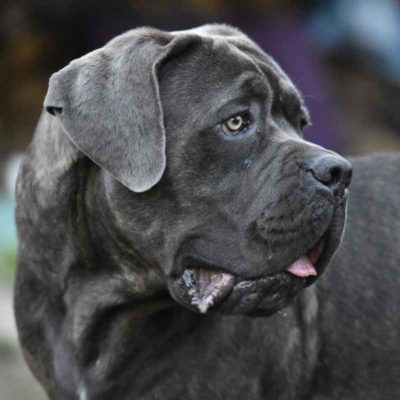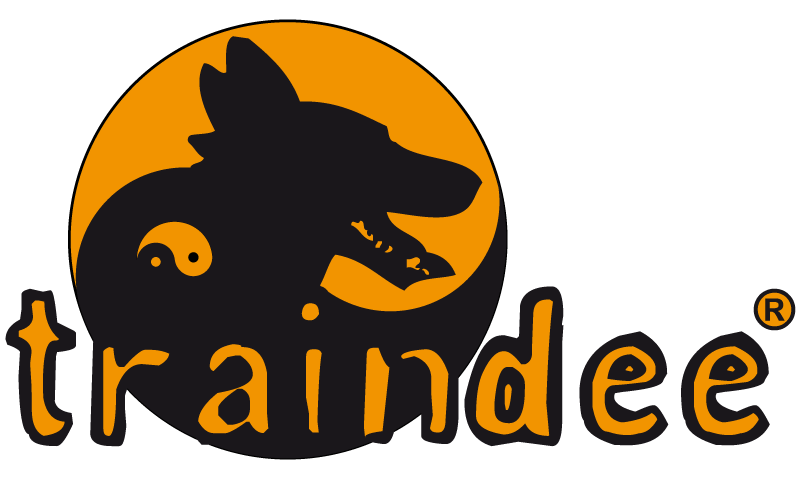The Cane Corso dog breed

The Cane Corso is a muscular working dog with strong bones and a self-confident and noble nature. Its lineage goes back to ancient Rome. These fearless and alert dogs can be intimidating to people and are not suitable for inexperienced dog owners.
They are actually gentle giants who can be excellent companions but unfortunately they are often misunderstood. For those who like a very strong and large as well as protective dog, the Cane Corso is definitely worth considering.
Characteristics of the Cane Corso
This affectionate and gentle breed forms a close bond with its family and acts as a protector. Contrary to its appearance, with proper handling and socialisation, the Cane Corso Italiano can get along well with children and even form a close bond with them. However, it is important to teach children how to behave around dogs and they should never be left unsupervised.
History of the Cane Corso
The origin of the Cane Corso is in Italy and can be traced back to ancient times. Its ancestor, the Molossian, is a now extinct Mastiff dog. Even in its early history, it served as a guard dog, war dog and hunting dog of various game, especially very large game. Its name is derived from the Italian word for dog (cane) and the Latin term cohors, which means “protector” or “guardian”.
The Cane Corso breed experienced a considerable decline during the First and Second World Wars. Only a small number of these dogs remained, which is why some enthusiasts sought to revive the breed in the 1970s. The Cane Corso dog did not come to the United States until 1988, was accepted into the AKC in 2007 and received full recognition in the AKC Working Group in 2010.
Cane Corso care
Most important for a Cane Corso dog is sufficient exercise and consistent training. Grooming requirements are minimal. If allowed outdoors, a high and sturdy fence should be provided to prevent escape, as the breed has a strong prey drive and tends to chase and kill small animals such as cats and other dogs. They also show territorial behaviour and like to patrol fences to protect their territory from passers-by.
Exercise
As a true working breed that is active and productive, daily exercise helps keep the Cane Corso dog physically and mentally fit. At the very least, extensive walks or runs of at least 30 minutes per day should be scheduled for exercise together.
Without sufficient activity, he may vent his frustrations in destructive actions such as digging holes or chewing things. In agriculture and on a farm, the dog can herd livestock and serve as a guard dog. You should set aside time each day for dog sports, give him mental tasks or obedience exercises.
Grooming
The Cane Corso has a short and rough coat and changes its coat very easily. The need for grooming is therefore rather low and occasional brushing and very rarely wet grooming is sufficient. His nails will naturally wear down as with other large dog breeds, but occasional trimming may be necessary.
Training
Proper upbringing, socialisation and training are essential for a Cane Corso. His territorial behaviour, as well as his natural aversion to strangers, demands careful upbringing and consistent training. Due to its enormous size and mass alone, it is of vital importance to ensure that it does not jump on anyone and does not pull itself off the leash. The Cane Corso is an intelligent and hard-working dog, learning something is a great pleasure for the breed and is not difficult for him.
Common health problems
Although responsible breeders strive to maintain the highest breed standards, hereditary health problems can occur, although the likelihood is considered low.
The following diseases should be noted:
- Hip dysplasia
- Gastric torsion (Torsio ventriculi, Dilatatio et Torsio ventriculi)
- Drooping eyelid (ectropion)
Diet and nutrition
A Cane Corso puppy should be fed a correct portion of food three to four times a day until it is about 6 months old. After that, only once or twice a day. It is important to remember that the full development of the musculoskeletal system in large breed dogs usually takes longer which means that some dogs do not complete their growth until they are two years old. It is important that the dog grows at a healthy pace, as too rapid growth can lead to orthopaedic disease and obesity.
Maintaining a healthy adult dog weight is absolutely critical for long-term health.
Obesity in dogs has been linked to a variety of health problems, including cancer. Even a little too much weight can significantly increase the likelihood of diseases such as arthritis and diabetes.
A healthy and nutritious alternative to dry food, fresh food made from food-grade meat and vegetables is the best way to keep your Cane Corso Italiano well-fed and his daily calorie intake adjusted to his needs.





